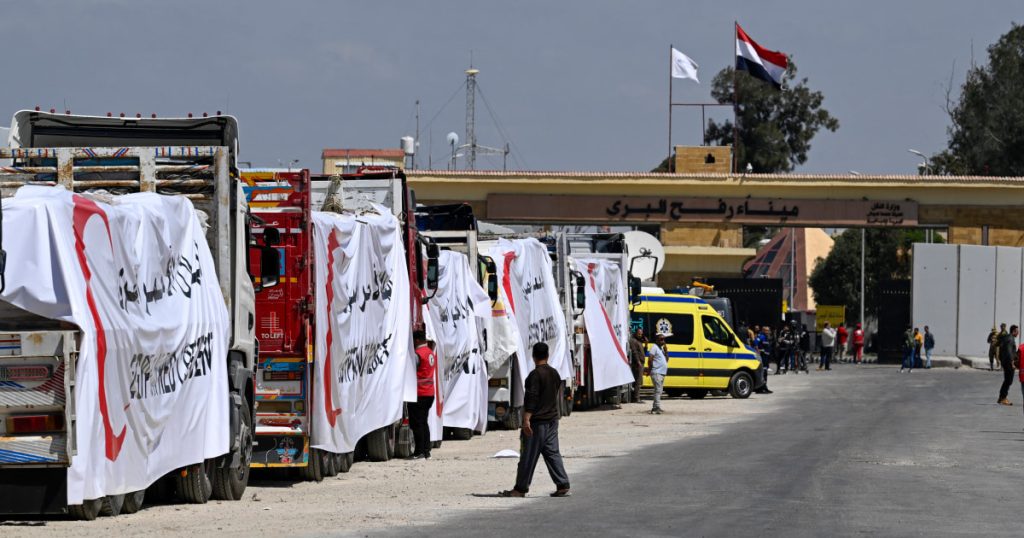Members of an NBC News team reported seeing hundreds of vehicles lined up at a tunnel crossing in Ismailia, roughly four hours from the Gaza border. Satellite images showed trucks on the road and parked near the crossing. Currently, only about half of the trucks that are able to be processed by Israel enter Gaza each day, far below the level needed for humanitarian and commercial goods. Israel has unclear restrictions leading to an average of 20 to 25 trucks being turned away daily.
Supplies in wooden crates are outright rejected by Israel, while trucks carrying aid on pallets that do not meet exact dimensions are also turned away. COGAT, the Israeli agency responsible for aid entry into Gaza, claims that 99% of aid trucks are approved after screening. However, Israel subjects certain items to higher security scrutiny, leading to items like insulin being rejected if stored in freezers. COGAT has a list of dual-use items that undergo stricter screening, which includes chemical products, cement, and metal, but not coolers or medical equipment. Distribution of aid within Gaza remains a challenge, particularly in the northern area where aid has been inconsistent and access has been denied by the Israeli military.
Efforts by organizations like the World Food Programme to deliver aid to northern Gaza face challenges including desperate crowds, checkpoint delays, and potential violence. UNRWA, accused by Israel of failing to distribute aid, also accuses Israel of obstructing convoy efforts by rejecting trucks carrying items like scissors. COGAT has responded by claiming that UNRWA has not requested convoys to travel north for six weeks. Nevertheless, UNRWA accuses Israel of turning away convoys and trucks carrying essential items. The Integrated Food Security Phase Classification initiative warned of an imminent famine in northern Gaza, with the first deaths due to malnutrition reported last month.
The World Health Organization has warned of long-term health ramifications in Gaza, where children are dying from malnutrition and disease. WHO Director-General Tedros Adhanom Ghebreyesus highlighted the urgent need for action to prevent famine in the region amid ongoing conflict. COGAT responded by stating that aid entry into northern Gaza has significantly improved in recent weeks and that the information used in the famine warning report was outdated. Despite efforts to improve aid distribution, the situation in Gaza remains dire, with continued challenges in accessing essential supplies and providing assistance to those in need.


